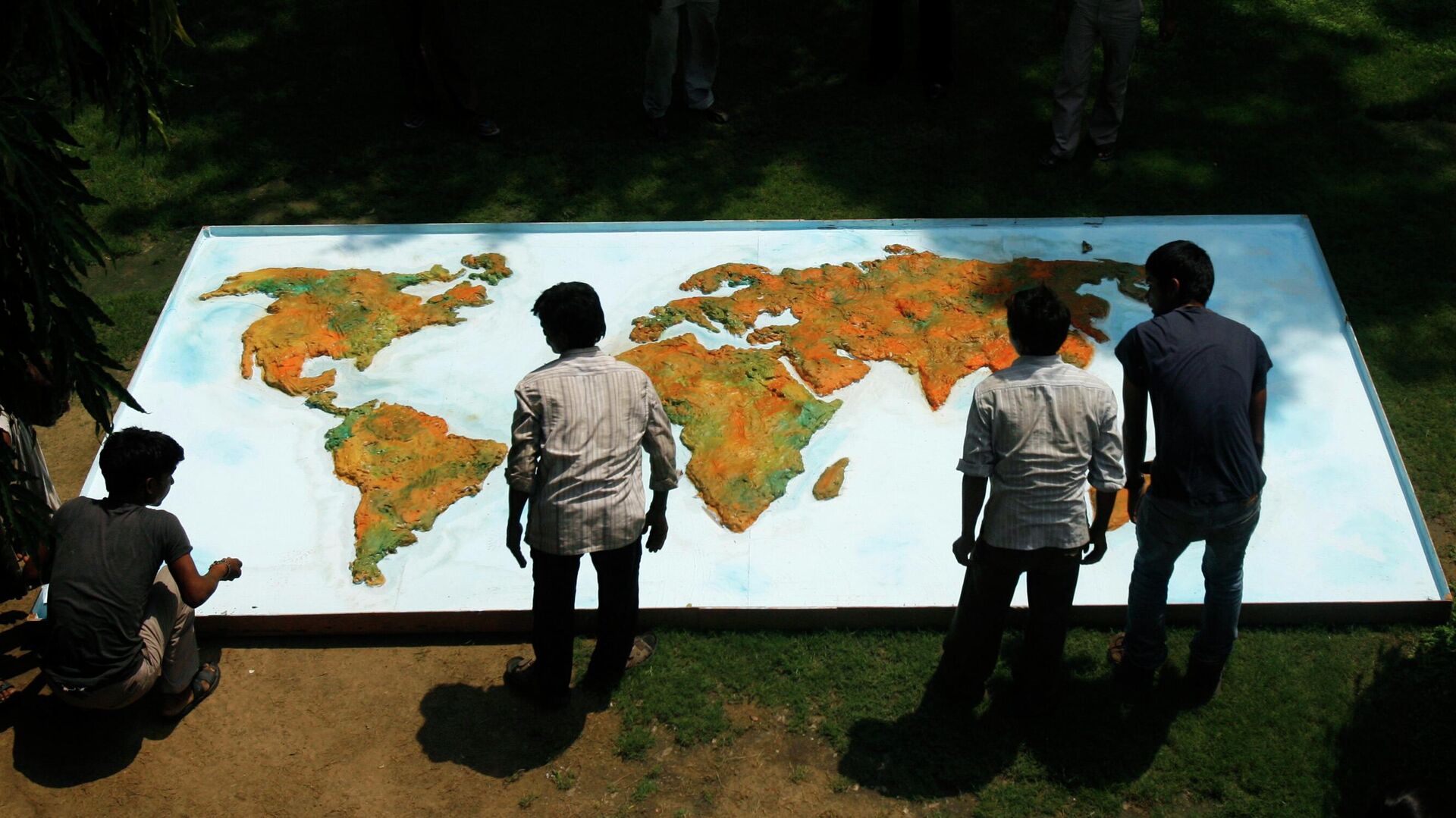https://sputnikglobe.com/20220711/india-to-surpass-china-as-the-worlds-most-populous-country-in-2023-un-report-1097177667.html
India to Surpass China as the World's Most Populous Country in 2023: UN Report
India to Surpass China as the World's Most Populous Country in 2023: UN Report
Sputnik International
Geographically, China is almost three times bigger than India. The latter is approximately 3.2 million sq km, while China is approximately 9.5 million sq km. 11.07.2022, Sputnik International
2022-07-11T09:36+0000
2022-07-11T09:36+0000
2022-10-26T10:51+0000
china
population
population decline
population
the united nations (un)
https://cdn1.img.sputnikglobe.com/img/07e6/07/0b/1097180008_158:501:2847:2013_1920x0_80_0_0_9692226d9b3d9f7eb1d1f805b0e836b7.jpg
India is projected to overtake China as the world's most populated country in 2023, according to a report published by the United Nations on World Population Day on Monday.As of today, India's population stands at 1.412 billion, compared to China's 1.426 billion, the report, titled World Population Prospects 2022, prepared by the United Nations Department of Economic and Social Affairs, Population Division, states. The report, however, states that globally, the population is growing at its slowest rate since 1950, falling under one percent in 2020.In 2030, it is projected to reach around 8.5 billion and then hit 9.7 billion in 2050. The nations contributing the most to these numbers are India, the Philippines and Pakistan together with several African nations: the Democratic Republic of the Congo (DRC), Egypt, Ethiopia, Nigeria, and Tanzania.Further, global life expectancy at birth reached 72.8 years in 2019, an improvement of almost 9 years since 1990. Further reductions in mortality are projected to result in an average global longevity of around 77.2 years in 2050.Want to know more? Check out our Koo & Telegram accounts!Koo: https://www.kooapp.com/profile/sputniknewsSputnik India: https://t.me/sputniknewsindia
china
Sputnik International
feedback@sputniknews.com
+74956456601
MIA „Rossiya Segodnya“
2022
Deexa Khanduri
https://cdn1.img.sputnikglobe.com/img/07e4/0c/1e/1081607388_0:0:961:960_100x100_80_0_0_e9e931b8c1e18fb41f3074e2145d7a3a.jpg
Deexa Khanduri
https://cdn1.img.sputnikglobe.com/img/07e4/0c/1e/1081607388_0:0:961:960_100x100_80_0_0_e9e931b8c1e18fb41f3074e2145d7a3a.jpg
News
en_EN
Sputnik International
feedback@sputniknews.com
+74956456601
MIA „Rossiya Segodnya“
Sputnik International
feedback@sputniknews.com
+74956456601
MIA „Rossiya Segodnya“
Deexa Khanduri
https://cdn1.img.sputnikglobe.com/img/07e4/0c/1e/1081607388_0:0:961:960_100x100_80_0_0_e9e931b8c1e18fb41f3074e2145d7a3a.jpg
china, population, population decline, population, the united nations (un)
china, population, population decline, population, the united nations (un)
India to Surpass China as the World's Most Populous Country in 2023: UN Report
09:36 GMT 11.07.2022 (Updated: 10:51 GMT 26.10.2022) Deexa Khanduri
Sputnik correspondent
Geographically, China is almost three times bigger than India. The latter is approximately 3.2 million sq km, while China is approximately 9.5 million sq km.
India is projected to overtake China as the world's most populated country in 2023, according to a report published by the United Nations on World Population Day on Monday.
As of today, India's population stands at 1.412 billion, compared to China's 1.426 billion, the report, titled World Population Prospects 2022, prepared by the United Nations Department of Economic and Social Affairs, Population Division, states.
"India, which will surpass China as the world's most populous nation by 2023, is projected to have a population of 1.668 billion in 2050, way ahead of China's 1.317 billion people by the middle of the century," said the Indian News Agency Press Trust Of India, quoting from the report.
The report, however, states that globally, the population is growing at its slowest rate since 1950, falling under one percent in 2020.
In 2030, it is projected to reach around 8.5 billion and then hit 9.7 billion in 2050. The nations contributing the most to these numbers are India, the Philippines and Pakistan together with several African nations: the Democratic Republic of the Congo (DRC), Egypt, Ethiopia, Nigeria, and Tanzania.
"This year's World Population Day falls during a milestone year, when we anticipate the birth of the Earth's eight billionth inhabitant. This is an occasion to celebrate our diversity, recognize our common humanity, and marvel at advancements in health that have extended lifespans and dramatically reduced maternal and child mortality rates," UN Secretary-General António Guterres said.
Further, global life expectancy at birth reached 72.8 years in 2019, an improvement of almost 9 years since 1990.
Further reductions in mortality are projected to result in an average global longevity of around 77.2 years in 2050.
Want to know more? Check out our Koo & Telegram accounts!


